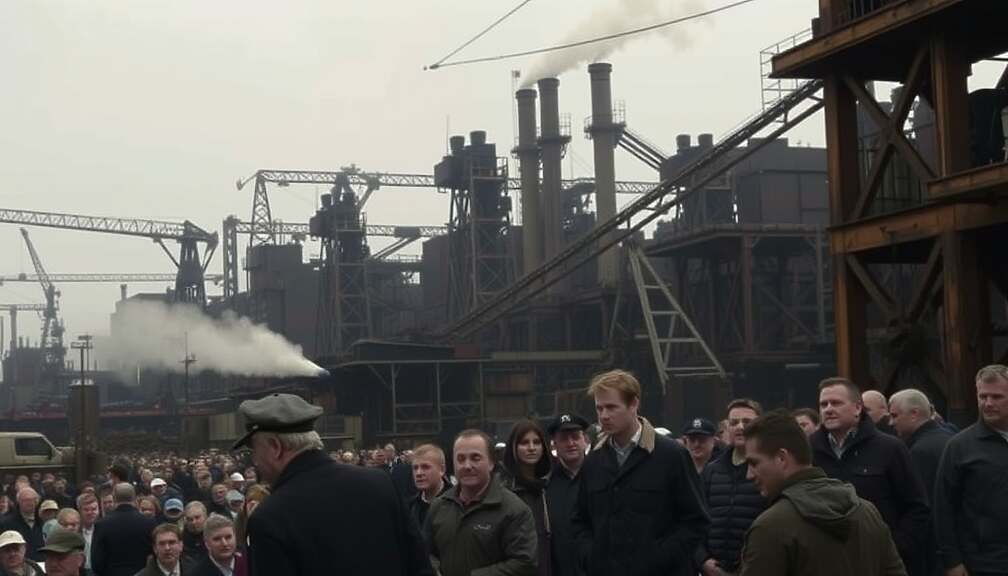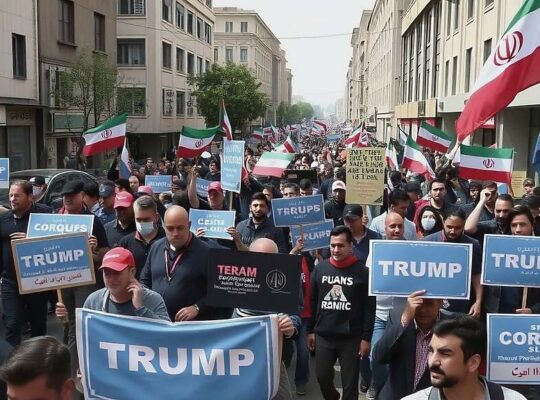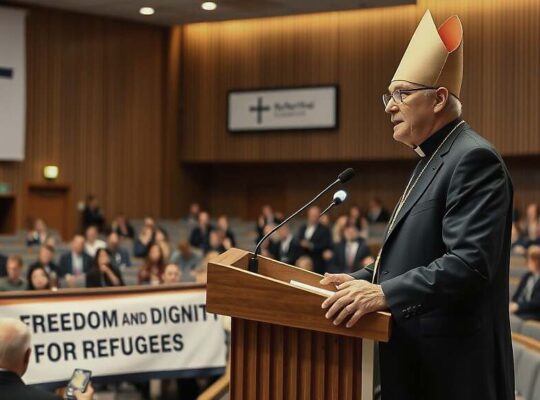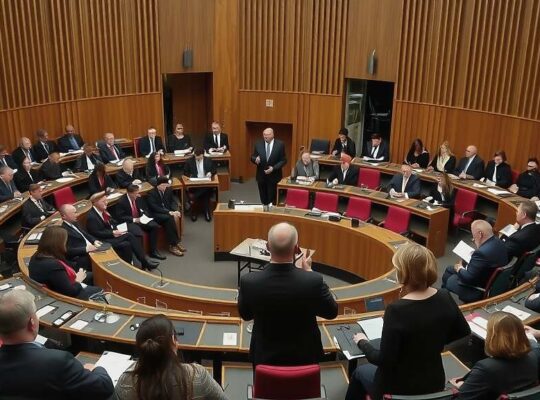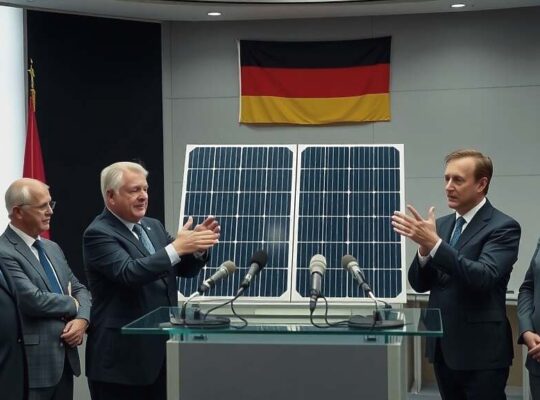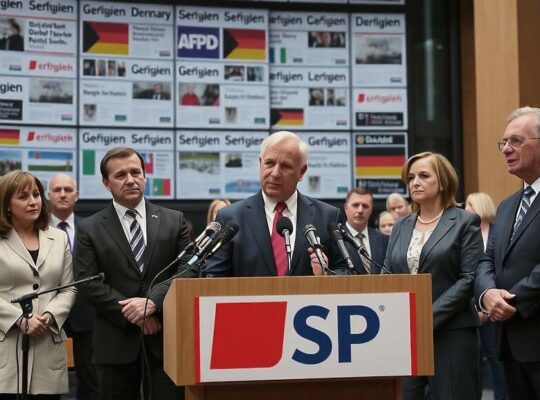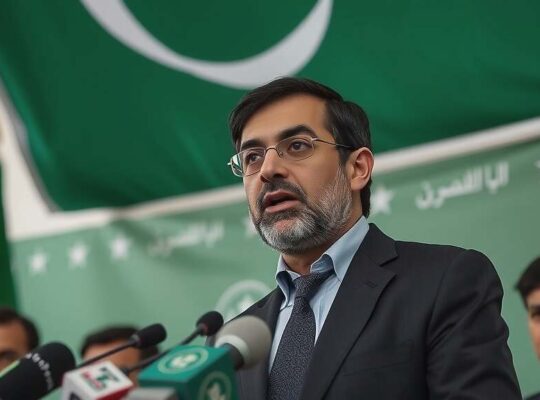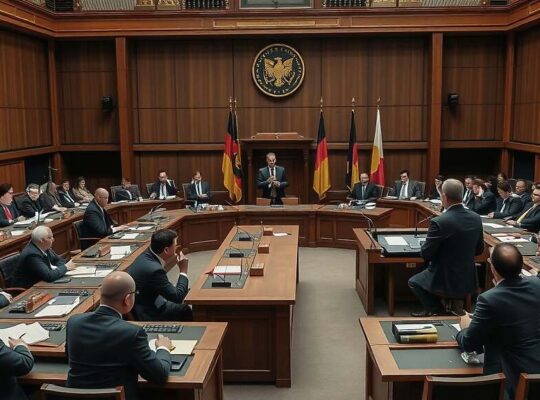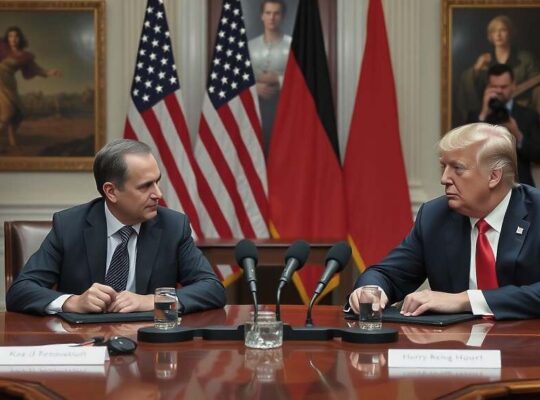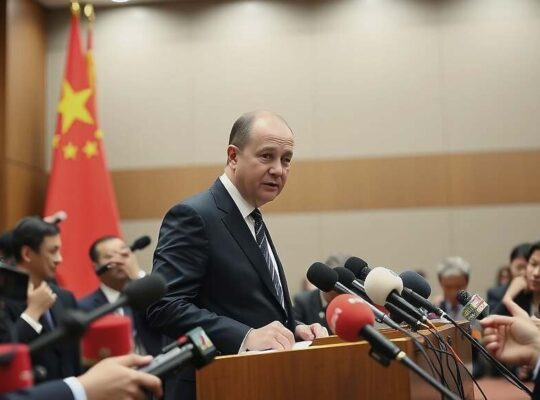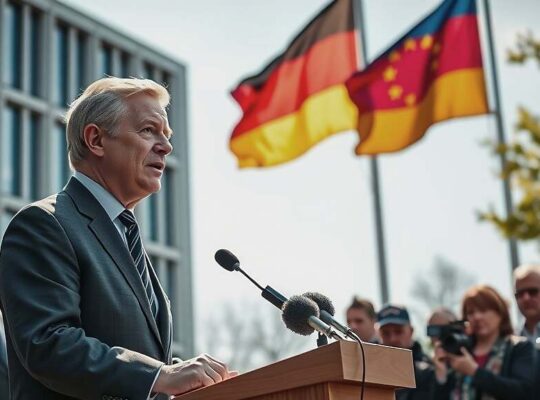Concerns over job security within Germany’s steel industry are prompting calls for increased government support. According to a draft resolution set to be discussed by leaders of the Social Democratic Party (SPD) across federal and state levels, Chancellor Friedrich Merz and Minister for Economic Affairs, Katherina Reiche (both of the Christian Democratic Union, CDU), are urged to translate previous announcements into concrete actions.
The resolution emphasizes the need for a clear roadmap aimed at improving the political, regulatory and economic conditions necessary for a successful industry transformation. Specific proposals include leveraging the European Union’s support framework to establish an industrial electricity price and exploring options for reliable electricity cost reductions, including a proposed federal subsidy for grid fees scheduled for 2026. Furthermore, the resolution advocates for extending the possibility of electricity price compensation at the EU level beyond 2030.
The production of “green” steel – utilizing electrified, renewable energy sources instead of coal – is significantly more expensive, placing considerable competitive pressure on several German manufacturers. To bolster the steel sector, party leaders are calling for the consistent implementation of effective protective mechanisms at the EU level to counter dumping imports and state-subsidized steel overcapacity from third-party nations.
Securing stable markets is also a priority, with the draft resolution proposing the creation of both national and European leading markets for reduced-emissions steel, alongside binding quotas for its use in public contracts.
The steel industry contributes approximately €50 billion annually to the German economy and secures hundreds of thousands of jobs. However, the transition to a more climate-friendly production process remains a contentious issue.
Recent decisions by the Luxembourg-Indian conglomerate ArcelorMittal, which has halted plans to build green steel production facilities in Bremen and Eisenhüttenstadt due to economic viability concerns exacerbated by high energy prices in Germany, highlight the challenges. The company has subsequently relinquished previously approved subsidies totaling €1.3 billion and is redirecting such projects to countries with more favorable conditions. Despite these setbacks, other major German steel producers, including Thyssenkrupp Steel, Salzgitter and Stahl-Holding-Saar (SHS), remain committed to their own green steel initiatives.


